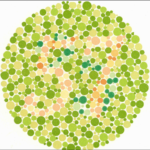
by James A. Bacon
People have been asking me what I think about the U.S. Supreme Court ruling prohibiting colleges and universities from using race as a specific basis for admitting students. I’m not a legal scholar, so I won’t offer any opinions on the legal or constitutional merits of the decision. I speak as a citizen.
My sense is that the Court has made a huge step forward in the generations-long campaign to build a color-blind society. If you share the ideal that a man should be judged by the content of his character, not the color of his skin, you will applaud the ruling regardless of its legalities. And if you believe that the condition of Blacks and Hispanics can be elevated in American society only through preferential treatment of their race and ethnicity, you will see it as a blow in furtherance of White supremacy.
The immediate impact will be to generate waves of punditry on how colleges and universities should implement the ruling — or evade it. Prevailing commentary seems to hold that most university administrators will “take a hard look” at their admissions policies, then tweak them to accomplish what they want — higher percentages of Blacks and Hispanics — without triggering lawsuits.
That certainly seems to be the case at the University of Virginia, where President Jim Ryan and Provost Ian Baucom have said in a statement to the university community that they will follow the law but also “continue to do everything within our legal authority to recruit and admit a class of students who are diverse across every possible dimension and to make every student feel welcome and included here at UVA.”
“Our commitment to diversity, in short, is not diminished,” they said, “even if our ability to pursue that goal is constrained.”
The Jefferson Council has taken no position on what the University should do. My sense as executive director is that it would be premature to do so. The fact is, we don’t know enough about UVa admissions policies to have an informed opinion. But the fact that we don’t have one bothers us. Our ignorance is not for a lack of inquiry. The University treats its admissions criteria and processes like a trade secret. Until the University opens up, it will be impossible to have a candid and honest conversation.
However, the impact of UVa’s admissions policies can be measured. UVa publishes a significant amount of data, and so does the State Council of Higher Education for Virginia. In the days and weeks ahead, we will publish data on enrollment, degrees earned, dropout rates, indebtedness, and other metrics that will help frame the debate.
Hopefully, we can figure out what we know and what we don’t know. And we can press for more transparency on what we don’t know.
In the meantime, we at the Jefferson Council need to have our own internal conversations. How do we, as an association of UVa alumni, define “diversity”? How do we define “inclusion”? My sense is that our members universally oppose the concept of “equity,” if equity means guaranteeing equal group outcomes. But President Ryan insists that “equal outcomes” is not what he means by equity. He says he means something more like “equal opportunity”… with adjustments made for disadvantaged minorities to give them an equal shot at succeeding.
Many Jefferson Council members — and Bacon’s Rebellion readers — say they believe in “meritocracy,” but what does that mean? Do we judge merit by SAT scores, ACT scores, and high school grade point averages? What weight do we place on student activities? What credit do we give to applicants who have demonstrated an ability to overcome adversity? How do we reconcile “merit” with “legacy” status? What does a “holistic” admissions process look like when there are 51,000 applications?
It’s hard for the Council to advocate UVa admissions policies when we haven’t formulated a coherent position of our own. I welcome feedback from Jefferson Council members and Bacon’s Rebellion readers. Please leave comments on this blog post — or submit columns to me at jabacon@baconsrebellion.com.
James A. Bacon is executive director of the Jefferson Council. This column was adapted from a post on the Jefferson Council blog.

Leave a Reply
You must be logged in to post a comment.